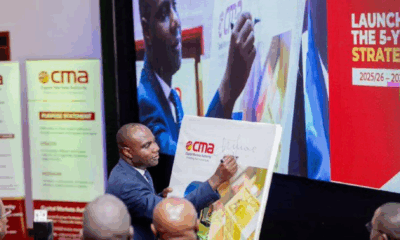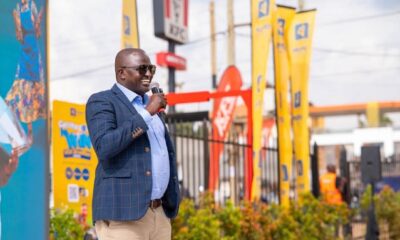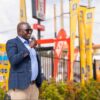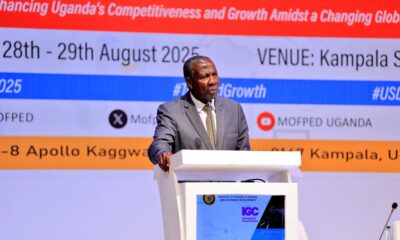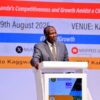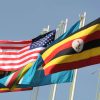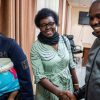Columnists
What makes Museveni dominant?
Are you listening Mr. President
Privatisation and liberalisation gave Ugandans the incentive to protect the status-quo!
I often come across people discussing the question: Why has Museveni ruled Uganda for a very long time? This debate tends to frustrate many of the participants.
The frustration often leads them to stop thinking rationally or at least in a systematic way while advancing their views. This is understandable because more than two thirds of Ugandans today, yours inclusive, have seen only one President. Thirty years is not a short time.
President Museveni has had nearly a smooth ride for three decades. Save for some violent riots and uprisings, he has not faced any serious threat to his power. Uganda used to suffer from what political scientists call a “coup trap” — each time a coup succeeded, it made another more likely.
The army used to mutiny. Army commanders used to grab power (Amin in 1971 and the Okellos in 1985). The government mortality rate used to be very high. Until Museveni arrived on the scene. In the 30 years he has been around, not even a single attempt has been made on his power.
So what do people often advance as the main reasons that have kept President Museveni in power for a long time? (1) The military might of the Uganda People’s Defence Forces (UPDF), (2) Museveni’s own popularity on the account of the heroic NRA liberation war of 1981 – 1986, (3) A weak opposition, (4) Luck, (5) Witchcraft (laughable but regularly cited), and (6) Gullibility of Ugandans; that Ugandans are naïve and thus easy to manipulate.
Proponents of reason No.1 say that Museveni has had a smooth ride in power mainly because he fixed the army and sorted out the “coup trap”. Unlike in the past, Uganda now has an army staffed with well-educated and politically conscious commanders and soldiers. Our military is no longer a gang of men who joined the army as a last resort.
Why no coup?
The current crop of men and women in our military uniform joined the forces to serve, similar to those who joined the medical services or the teaching fraternity. Many educated young men and women, some that highly qualified with degrees and post-graduate qualifications, aspire to join the UPDF unlike in the past when mainly the uneducated and criminals joined the forces.
When they join, the new recruits, apart from the conventional military drills and training, are subjected to comprehensive lessons in political education and siasa (often the NRM ideology and Pan-Africanism).
They thus become politically conscious, and it goes without saying that their political consciousness is biased towards their founding commander-in-chief. The army is represented in parliament which enhances their political awareness, and participation.
On the regular army, add the now strong, well-trained and well-facilitated presidential guard, now a fully-fledged force of its kind — the Special Forces Command (SFC). Thus security for the presidency and the nation is in safe hands. Even when we get popular demonstrations and riots, like it happened in September 2009 and the walk to work protests in 2011, the army does not get carried away.
Another important aspect we should not forget is that coups tend to be staged by lower rank officers (sergeants, lieutenants, captains etc). These are the commanders who have full contact with the troops. In the UPDF, however, I don’t think these junior commanders are in charge of the troops they command! Museveni, being a veteran guerrilla, structured the forces in such a way that no commander is in full control the troops below him.
No Opposition
Additionally, it is important to note that military might alone cannot be able to keep a government in power for such a long time. This brings in factor No.2 in our list above. Often coups succeed when there is a popular mandate for them. When the leader becomes largely unpopular no military might is able to withstand the power of the people.
The recent coup in Burkina Faso, for example, failed simply because the Presidential Guard that had staged it was more unpopular than the military government they wanted to remove.
Museveni is aware of this fact. He spends more time looking for support across the country. At his advanced age, and not so-good health as he used to be, the president spends more time in villages of Uganda looking for votes. His is political season all year round, all term round! And he doesn’t allow his opponents to have the same campaign time. So he remains the most popular individual in Uganda.
Wherever you go in Uganda, the people know Museveni, and many identify with him as their hero, having fought and defeated the past bad governments and all rebel groups.
Factor No.3 in our list above concerns the weaknesses in Uganda’s opposition. Most of Museveni’s opponents have historically been either weaker than him, or largely looked at by Ugandans as opportunists in a power struggle.
Paul Kawanga Ssemwogere (Museveni’s main opponent in 1996 elections) resigned from his government to stand. Dr. Kizza Besigye (2001) fell out with his boss and instantaneously declared his presidential ambitions.
Amama Mbabazi (the likely main challenger in 2016) has been Prime Minister and NRM Secretary General just yesterday. So people are likely to ask, what wrong has Museveni all of a sudden committed to make Mbabazi the eligible alternative? No wonder, in the NRM and the UPDF, they have already baptised him “traitor”.
The economy
However, in spite of the above, Mbabazi could still stand a big chance of challenging Museveni had he received full support in The Democratic Alliance (TDA). This has not happened. Like I wrote in these pages a fortnight ago, Besigye is determined to stand again even when he knows that Mbabazi stands a better chance of defeating Museveni. This is where factors No.4 (luck) and No.5 come in.
Museveni is a very lucky man, and to some he might actually be using some African voodoo to twist his opponents’ intellect.
All the above are very strong factors that could explain Museveni’s long stay at State House.
However, one factor that most Ugandans overlook, yet it might be the main one, is the role of the economic system that has prevailed in Uganda since the late 1980s.
When Museveni took over power, he inherited an economy that was in shambles. He reformed the economy along the neoliberal lines — allowing market forces to determine prices, transferring most of the economy to private sector, removing regulations on trade and finance.
The economy responded well, although the reforms have also created new challenges that need to be addressed, such as jobless growth, volatility in the macro and micro economy, rising GDP with stagnant incomes, foreign dominance, too much imports, etc.
Known devil?
One key reform that stabilised Uganda’s politics and security is privatisation. When the economy was put in the hands of the private sector, Ugandans got the opportunity to accumulate wealth. Before the economy was liberalised and privatised, wealth concentrated in government. Government owned the economy and Ugandans were workers for government.
Many did not even own homes. They were staying in government owned houses. They thus had no incentive to ensure political stability. Whenever a coup or change of government happened, all Ugandans had to do was to pick a suitcase and their children and leave for exile. Nothing much in the form of wealth they used to leave behind.
With privatisation and liberalisation, Ugandans have come to accumulate a lot of wealth that they now own a stake in this country. This has given them enough incentive to protect the status-quo. Many businessmen and property owners in Kampala and other parts of the country want President Museveni to carry on, not for his own sake, but for their own interest.
They fundraise for his campaigns, and I hear some even buy the teargas that the police spray on Besigye and other opposition politicians. Why? Not because they support Museveni per se. No! They do this because they are more comfortable with the known devil than the unknown angel.
Many of the people that pretend during the day to belong to the opposition are the ones that turn up on polling day to vote for Museveni. I was a DP activist in Makindye for a long time and what I experienced there was enough to make me understand why Museveni will lead this country until he drops dead. This exactly is what I told my young brother way back in 2001.
Comments






